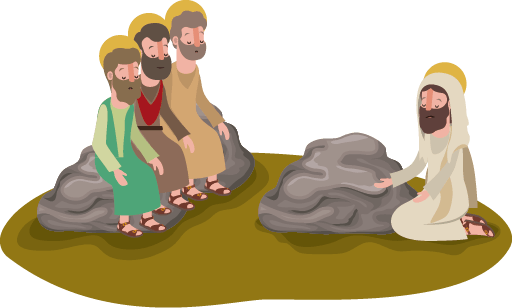I (Vincent) love reading biographies. In good biographies, you really get to know the person. As a marriage counselor, I now read biographies with a little different slant – with more depth than I did before. I read about a person’s experiences and interpret how it affected their decisions and attitudes and the direction that their life takes. I find it fascinating.
I have started a new biography, Grant, by Ron Chernow. I have read a lot of history on the Civil War and biographies of other figures in the Civil War. So I have some knowledge of Grant, but reading this book just enlightens me even more. Ron Chernow of course, is a great historian and writer. He wrote Hamliton, the book that so fascinated Lin-Manuel Miranda that he was inspired to write, direct, and star in a hit musical about Alexander Hamilton – our first Secretary of Treasury.
With Grant, I feel a certain similarity. He grew up going to a Methodist church with parents who attended faithfully. I did as well. My parents and my family were always involved in our Methodist church.
What I find interesting about Grant was his name and how it evolved over time. When he was born, his parents had not decided upon a name. His father liked the biblical name Hiram. His mother liked Albert – from Thomas Jefferson’s Treasury Secretary Albert Gallatin.

But his mother’s stepmom suggested Ulysses after the ancient commander. By some accounts, it was said that they drew names out of a hat to decide the matter. Anyway, he was named Hiram Ulysses Grant. Unfortunately, his initials spelled HUG, and his classmates teased by calling him “Useless” Grant.
My Name and Its Origin
When I think about my name, I feel I got the best names considering the naming procedure. My parents named my older brother after my father. But for me they named me after my two grandfathers – Millard Vincent Ketchie and Ervin Quitman Donaldson. I could have been named Millard Quitman Ketchie, but more reasonable heads prevailed and I was named Ervin Vincent Ketchie.

Like Grant, I was teased in school some. I was given the nickname Fish or Moby Dick, not because of any oddity in my name, but because my hair gets wavy when it gets long. But most people called me “Vinnie” or “Vince”.
Reluctant Obedience
At the age of 17, Grant went to school at West Point, but not by his own desires. His father was quite boisterous, strong-willed, and ambitious. He arranged for him to get an appointment there though Grant preferred to stay near home and be a farmer. Grant acquiesced and begrudgingly went. During the process, the local politician misspelled his name and wrote Ulysses S. Grant in the application.

When he arrived to West Point, his name was listed on the roll call as U. S. Grant. The other cadets saw this and immediately called him Uncle Sam. During his years at school, he was known as Sam. That was his nickname.
My immediate thought is wow! Here is the person who led the Union to victory, who really didn’t want to be a soldier, but is kind of renamed U.S. Oh, and I didn’t mention that Grant was disgusted by blood and slaughter. His father was a tanner, and he was revolted by the work. Grant loved animals, especially his horses. This is the man to lead thousands of Union soldiers to their death while restoring the unity of the United States.
God’s Greater Purpose and Accepting It
As I pondered deeper, I thought how maybe Grant took on this new name. He did adopt U.S. as his initials, but I think it went deeper than that. As a youth, Grant was comfortable with horses, reading, and family time, but he was quiet and not seemingly ambitious. At West Point, Grant used his horsemanship to stand out from the others. He becomes sociable and makes many friends – everyone likes him even though he is quiet. He is still not in love with soldiering, but he soaks up all of the knowledge about it.
Through Grant’s service in the Mexican War, he seems to identify more with his new name. He is comfortable leading and putting his life on the line for his country. On one occasion, his regiment was hemmed in by musket fire from low rooftops nearby and they were running out of ammunition. Grant volunteered to go get more. He wrapped his foot to the saddle and hung onto his horse’s neck so that his entire body was shielded by the horse. He made it safely through and back again.

The bible says in Proverbs 16:33 “The lot is cast into the lap, but its every decision is from the Lord.” In essence, this proverb describes how things don’t happen by chance, but instead God is in control. It seems that Grant was destined to become a leader even though he was resistant. His name seemed to be a powerful way that his resolve was bolstered. He is named after a great ancient commander from a hat drawing. Mistakingly, a politician gives him the initials US. It seemed to be his destiny from God.
How God Uses Nicknames in the Bible
Does God use nicknames to bolster our self-worth and purpose? Or how does God use nicknames in our lives? In the old testament, God renames the fatherless Abram to Abraham (Gen. 17:5). Abram means “God exalted”, whereas Abraham means “father of many”. After Jacob wrestles with God, he is renamed Israel which means, “one who struggles with God” (Gen. 32:8). Jacob beforehand did not really seek God. Instead he used his own means to get what he wanted. He manipulated his family by persuading his brother Esau and deceiving his father Isaac (Genesis 27).
In the new testament, Jesus gives Simon the nickname of Peter which means “Rock” (John 1:42). This is Peter who waivered when walking on the water (Matthew 14:22-31) and denied Christ on the night Jesus was betrayed by Judas (Luke 22:54-62). Peter was not at the foot of the cross when Jesus died. Simon Peter was unsteady in his belief, but he was nicknamed “the rock”. On the other hand, John was at the foot of the cross when Jesus died (John 19:25-27). Jesus tells him to take care of his mother Mary. John and his brother James were nicknamed by Jesus “Sons of Thunder”. Interestingly, they always seemed to be taking their cue from Peter or someone else. Their mother took the lead when asking if they could be seated on the right and left of him when he came to power – not them (Matthew 20:20-21).

Do you get the theme? God seems to give nicknames that are intended to bolster the person’s particular weakness. Abraham “the childless” is named “father of many”. Jacob “the go it aloner” is named “one that consults God”. Peter “the unsteady one” is named “the rock”. John and James “the quiet, reserved ones” are named “sons of thunder”. Interestingly, James according to church tradition is the first of the twelve to be martyred – sawed in half.
What Nickname Does God Have For You?
So what nickname does God have for you? In what areas do you need bolstering? For me, I have many weaknesses, but one that seems to ensnare me the most is that I am thinking too far ahead. I am not in the moment enough or I am just impatient. So maybe I should be nicknamed Vincent “the Content One”. How about you?
Feeling stuck and depressed? Read about how a fatherless man who fathered no biological children became the “father of a nation”. Or have you considered individual counseling?


Leave a Reply